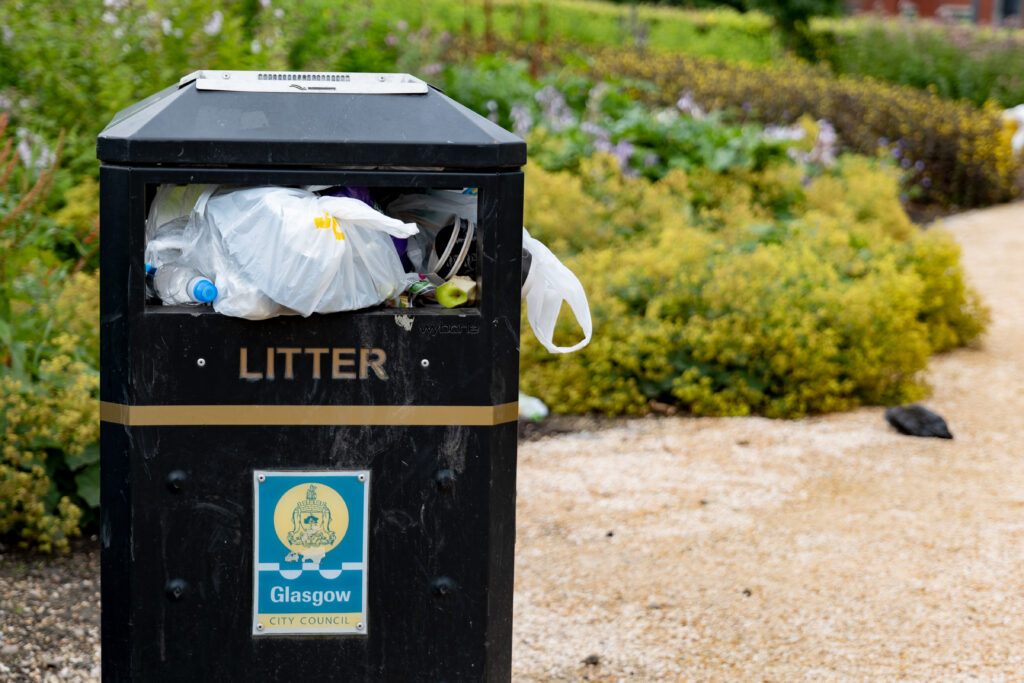As individuals, we are all responsible for our waste, what we do with it, and how we handle it in the most responsible way. The way we manage our waste has huge effects on the environment, so we must ensure we are doing it correctly. Good waste management strategies are easy to adopt, we just need to think about the end of life of our rubbish and the best way to dispose of it. Things like ensuring we do not litter any waste, and instead choose the right bin to help with its circularity aspects – if it can be recycled, then we must recycle it!
Whilst we are responsible for our own waste, it is local authorities and waste management specialists that are responsible for managing waste collection and how it is handled in their area. From residential and commercial bins to the public waste bins around towns, villages, and cities, all of these areas are managed by the council or a specialists waste management company.
Household Problems
Residents of households are usually offered a range of bins or bags to capture the different forms of waste produced from their homes. Typically they capture general waste, dry recycling waste, garden waste, and in some cases a food waste. Although the same types of materials are collected, how they are collected and the consistency will differ in each jurisdiction. One thing that must be made clear is the waste collection preferences, it must be well specified what is collected, how it is collected, and when. Contamination is a huge problem in waste management, this contamination could be the result of a lack of understanding of household waste collection strategies. The clarification that comes from Local Authorities plays a big part in reducing contamination and can be done in the forms of newsletters, leaflets, social media or website posts and even printed bins and bags. The next step is to create consistency across the board so all jurisdictions collect the same waste in the same manner, which is being implemented in the future through government legislation.

Community / on-the-go Waste
Waste outside of our homes is also managed with the help of local authorities, who provide waste bins in many highly populated areas of their communities to help capture rubbish on the go. The responsibility of the council is to provide the bins and empty them regularly, whilst it is the public’s responsibility to use them, it is still noticeable that sometimes these bins are not being used as they should. Although the person littering should take full responsibility, there are few factors that local authorities and organisations implement to reduce wrongful behaviour. Both are simple ideas but often very effective, one is implementing more bins and the other is increasing the frequency of collections.
Tackle the litter issue in Local Authorities
As well as increasing bins and waste collections, simple anti-litter promotion can also help put a stop to waste crime. Cromwell has recently developed an anti-littering promotional pack, free to download and used by all.
The pack consists of posters, social media images and videos for posting, and an information leaflet. The posters and social media posts have 4 different designs, all of which are targeting hotspot litter areas or problems, these include dog waste, Flytipping and littering in areas such as beaches and streets. We welcome you all to download and use the above material – our goal is to help create a cleaner, greener, and more resourceful planet, and our new anti-litter pack is a step towards this sustainable goal.